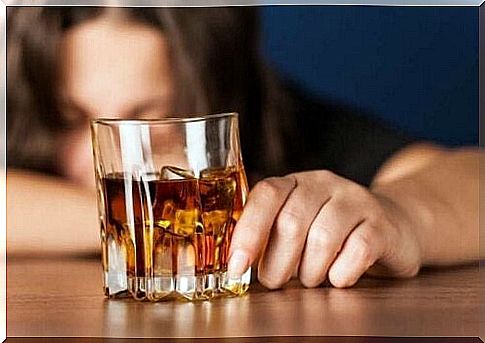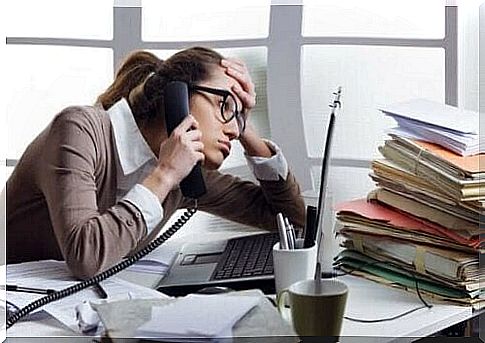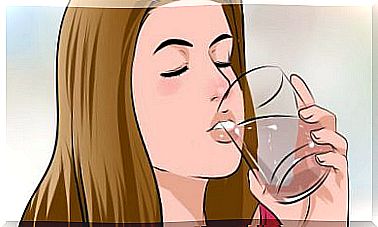5 Tips For Avoiding Ulcerative Colitis Attacks
Improving your lifestyle can help in the treatment of ulcerative colitis, and thus minimize the attacks. Discover a series of recommendations to remedy it.

Ulcerative colitis is a chronic autoimmune disease, which affects the gastrointestinal system. It occurs when the lining of the large intestine, rectum or both becomes inflamed. So, how to deal with an attack of ulcerative colitis?
The disease may present with periods of remission, which are characterized by mild or hardly noticeable symptoms. However, there are stages of crisis or flare-ups, during which episodes of diarrhea, abdominal pain and colic, among other symptoms appear.
Their treatment may vary depending on the medical conditions and certain factors such as the age, habits and current state of health of the sick person. However , in general there are a few recommendations to follow to avoid complications.
How to recognize an attack of ulcerative colitis?

The clinical manifestations of ulcerative colitis can vary from person to person, depending on the patient’s immune system response and lifestyle. Many patients suffer from mild symptoms, or even periods of asymptomatic nature. However, the disease also causes periods of flare-ups, or fits, during which the patient will suffer from:
- Intense abdominal pain.
- An increase in stomach sounds.
- Bleeding in the stool.
- Diarrhea.
- Moderate fever.
- Rectal pain.
- Noticeable weight loss.
- Nutritional deficiencies.
- Skin problems.
- Decreased appetite and nausea.
Some tips for treating an attack of ulcerative colitis
In order to be able to properly treat attacks of ulcerative colitis, it is essential to receive a medical diagnosis . A healthcare professional can determine whether the symptoms are due to ulcerative colitis or to other problems, such as Crohn’s disease or diverticulosis.
Tests may include blood tests, stool samples, barium enema, or colonoscopy, among others. If the symptoms do correspond to an attack of ulcerative colitis, the doctor may suggest some medications and lifestyle changes. In more severe cases, surgery may be necessary.
In general, there are a few tips that can help prevent and treat these flare-ups. These are simple measures, which can be applied from day to day, both in periods of remission and in periods of crisis. So put them into practice!
-
Limit the consumption of dairy products

However, research has shown that certain foods and drinks can make symptoms worse, especially during seizures.
One of the varieties of these harmful foods are dairy products. Regular consumption can worsen symptoms such as abdominal pain, diarrhea and gas. However, it is necessary to limit as much as possible the consumption of milk, cheese, ice cream and industrial yoghurts.
-
Increase fiber intake
Fiber plays a very important role in digestive health. In ulcerative colitis, they can do good or bad. Consuming them in moderate amounts can help maintain regular digestion during times of remission. However, when there is a crisis, they can be counterproductive.
Eating lots of fiber can make some symptoms worse, such as inflammation, gas, or diarrhea. It is best to minimize the consumption of whole grains, dried fruits, seeds, vegetables, and other sources of fiber during a crisis. On the other hand, it is not recommended to completely stop consuming them.
-
Avoid alcoholic drinks and stimulants

One of the keys to coping with attacks of ulcerative colitis is knowing how to choose drinks that keep the body hydrated . Water is without a doubt the best alternative. However, some teas and infusions are also beneficial. What should absolutely be avoided are alcoholic drinks, or stimulants.
Beer, wine, coffee, and soft drinks increase this intestinal problem and make diarrhea worse. Carbonated drinks are more of a problem because they produce more gas build-up.
-
Eat light meals
Another measure that can help in relieving the symptoms of this disease is to make a better distribution of meals. Instead of having three main meals, it is best to opt for five meals with smaller portions. This will decrease the load on the digestive system and promote intestinal balance.
-
Control stress

It is clear that stress is not a direct cause of this pathology. However , knowing how to manage it will go a long way in minimizing these symptoms. Being exposed to constant episodes of stress and anxiety can trigger seizures. Here are some steps to minimize the symptoms of ulcerative colitis:
- Exercise moderately.
- Go to therapeutic massage sessions.
- Enjoy aromatherapy sessions.
- Meditate and do yoga.
Do you suffer from this disease? Remember to have regular medical exams. Even if there are asymptomatic periods, it is best to know for sure how this problem is progressing.









